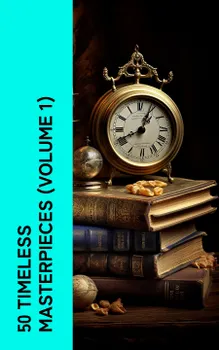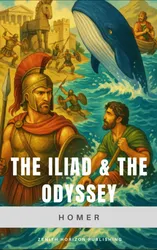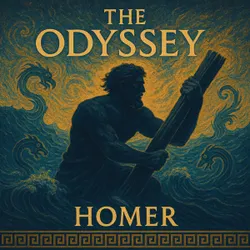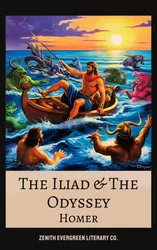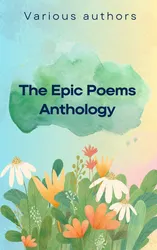E-artnow invites readers on an enriching literary journey through a carefully curated selection of essential classics. This volume presents a diverse array of masterpieces that have shaped the landscape of literature and captivated the imaginations of generations:
Iliad & Odyssey (Homer)
Art of War (Sun Tzu)
The Republic (Plato)
The Divine Comedy (Dante)
Hamlet (Shakespeare)
Don Quixote (Miguel de Cervantes)
Paradise Lost (John Milton)
Robinson Crusoe (Daniel Defoe)
Faust (Johann Wolfgang von Goethe)
Pride & Prejudice (Jane Austen)
Dead Souls (Nikolai Gogol)
Wuthering Heights (Emily Brontë)
Frankenstein (Mary Shelley)
The Count of Monte Cristo (Alexandre Dumas)
Crime and Punishment (Fyodor Dostoevsky)
A Tale of Two Cities (Charles Dickens)
Les Misérables (Victor Hugo)
The Scarlet Letter (Nathaniel Hawthorne)
Madame Bovary (Gustave Flaubert)
War and Peace (Leo Tolstoy)
A Doll's House (Henrik Ibsen)
Moby-Dick (Herman Melville)
The Adventures of Tom Sawyer (Mark Twain)
Treasure Island (Robert Louis Stevenson)
A Study in Scarlet (Arthur Conan Doyle)
The Big Sleep (Raymond Chandler)
The Time Machine (H. G. Wells)
Heart of Darkness (Joseph Conrad)
The Jungle Book (Rudyard Kipling)
Little Women (Louisa May Alcott)
The Wonderful Wizard of Oz (L. Frank Baum)
Anne of Green Gables (L. M. Montgomery)
The Waste Land (T. S. Eliot)
The Metamorphosis (Franz Kafka)
Ulysses (James Joyce)
Mrs. Dalloway (Virginia Woolf)
The Screwtape Letters (C. S. Lewis)
The Old Man and the Sea (Ernest Hemingway)
Leaves of Grass (Walt Whitman)
On the Road (Jack Kerouac)
Of Mice and Men (John Steinbeck)
The Sound and the Fury (William Faulkner)
The Awakening (Kate Chopin)
Their Eyes Were Watching God (Zora Neale Hurston)
Gone with the Wind (Margaret Mitchell)
The Bell Jar (Sylvia Plath)
Death in Venice (Thomas Mann)
The Stranger (Albert Camus)
Nineteen Eighty-Four (George Orwell)
